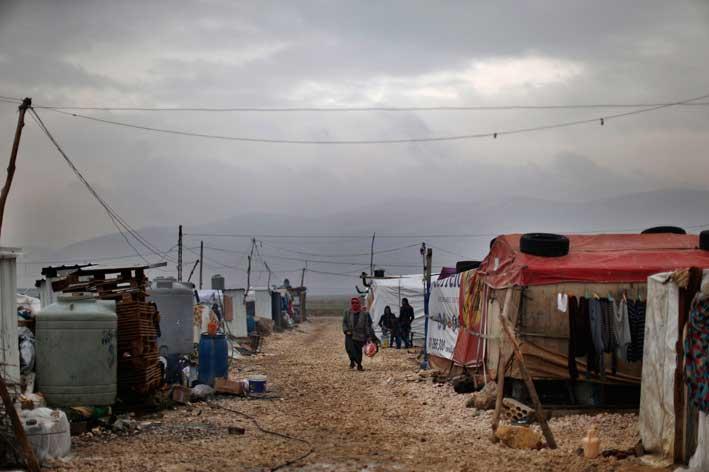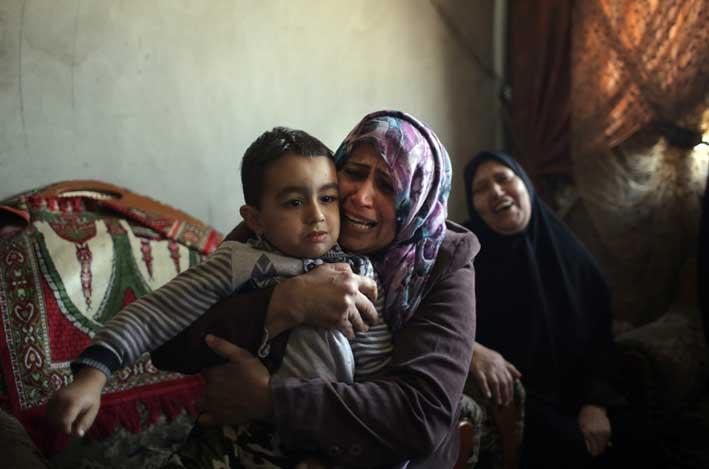It's been dangerous and cold and there are rumors Europe is shutting its doors to people like him, but Samim Nawabi says he won't turn back because the dream of a new life in Germany has given him something his home country no longer can — hope.
The 24-year-old computer expert left Afghanistan with his family about a month ago, joining more than a million people who came to Europe last year in the biggest migration on the continent since World War II.

Although winter conditions and stricter border controls have reduced the numbers of refugees traveling toward the wealthy nations of the European Union in recent weeks, thousands are still embarking on the trip daily, braving both the freezing temperatures and mounting anti-immigrant sentiments fueled by the November terror attacks in Paris and New Year's Eve attacks on women in Germany.
"We lost hope there (in Afghanistan) about life, you know," Nawabi said. "It's very hard to live if you don't see anything in the future."

Nawabi, his parents and siblings arrived in Serbia this week after crossing Iran, Turkey, Greece and Macedonia. The family were spending a day near the border town of Sid waiting to board a train that will take them to EU member Croatia and on toward Germany.
At a refugee center, dozens of people ventured outside for a rare chance to enjoy a spate of warmer weather after weeks of sub-freezing cold and snow. Smiling children played in the muddy road, blowing soap bubbles and watching the sun rays glistening through them.
"Now we are happy, now I find hope of starting something new in my life," Nawabi said.

The camp doctors and aid workers said wintry weather has caused a surge in respiratory diseases among the migrants, particularly children and the elderly, despite efforts to keep them warm. Additionally, refugees are refusing to pause while they recover, choosing only to take the medicine and continue their journey, doctors and aid workers said.
"We haven't had any freezing or anything like that, at least not for now," said doctor Maja Saponja, who works at the refugee center. She added that "we have had children with high fever which is very dramatic for them."

Most of the people traveling toward the EU countries are unused to harsh weather conditions and often set off without winter clothing. Tanja Menicanin from the Danish Refugee Council said her organization has been working around the clock to provide warm boots and jackets.
Still, the dream of the promised land in Europe has become unreachable for some.
Late last year, the EU and Balkan countries on the migrant route introduced rules that let only nationals of war-torn Syria, Iraq and Afghanistan — those most likely to be granted asylum — continue the journey, as the EU looked for ways to control the influx.

Further strengthening control, Slovenia and Croatia since Jan. 1 have sought additional lists of people boarding the migrant trains, checking each name against the list. There have been fears of tensions building in the region if countries start returning migrants southward, in a ripple effect along the route.
The Serbian border police commander in Sid, Mico Djukic, said his officers have been working together with colleagues from Croatia in overseeing the migrant flow. Still, he said, many citizens of other countries have tried to skip all the regulations and sneak in with the refugees.

"In cases where we miss identifying such a person, and they show up entering the train, colleagues from Croatia don't let them pass and they turn them over to us," Lukic said. He said migrants are then taken to refugee centers where they can formally apply for asylum and await a legal procedure on their future status.
Bayan Al Saho, a refugee from Syria, said she wanted to reach Germany as soon as possible. The 24-year-old said she felt "very ashamed" because of a series of attacks on women in Cologne, which have led to a rise in anti-immigrant sentiment in the country that has taken in the largest number of refugees so far.
"We are not doing those things. I think they are bad people," Al Saho, who hopes to study political science in Germany, said of the assaults. "We all love peace, and hope to live in peace."